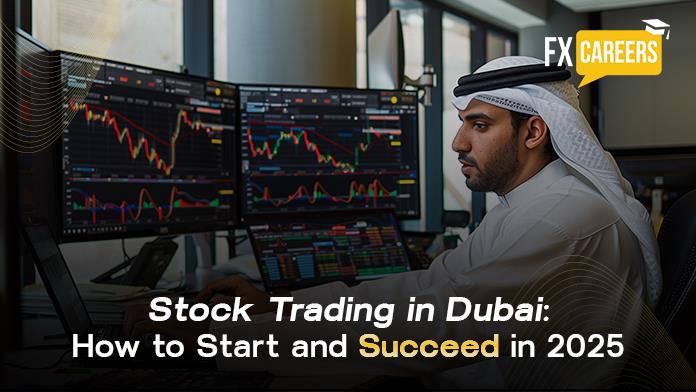FXCareers Blogs
 Go Back Home
Go Back Home

 08-10-2024
08-10-2024 5 minutes of Reading
5 minutes of Reading
Top 5 Skills Every Forex Trader Needs to Succeed
In Forex trading, success isn’t just about luck but mastering specific skills. This blog outlines every trader's five essential skills: risk management, technical analysis, fundamental analysis, discipline, and continuous learning. Each skill is explained in simple terms, providing you with clear strategies to improve your trading performance. Whether you’re new to Forex or looking to enhance your skills, FXCareers offers expert courses to help you succeed. Learn how to trade confidently and profitably with guidance from industry professionals."
Top 5 Skills Every Forex Trader Needs to Succeed
In the foreign exchange market, where daily trading volume exceeds $6.6 trillion, success isn't determined by chance. Statistics show that only about 10% of Forex traders achieve consistent profitability. What separates these successful traders from the rest is a skillset. Research and market analysis has identified five indispensable skills that significantly affect trading outcomes. Let's explore five key skills that every Forex trader must have to succeed.
It takes more than luck or gut instinct to succeed in the quick-paced world of Forex trading, where you may make or lose money in a matter of seconds. It comes from developing specific skills and thinking strategically. To distinguish between successful traders and those who struggle, traders need a strong set of skills that help them handle the market's challenges. This article explores the five key skills that every Forex trader must have to succeed.
1. Risk Management Mastery
Effective risk management is essential for profitable Forex trading. It involves understanding and controlling potential losses to protect capital and ensure long-term profitability. Effective risk management strategies include:
-
Setting Stop-Loss Orders: These orders automatically close a trade when the price reaches a predetermined level, limiting potential losses.
Position Sizing: Depending on account balance and risk tolerance, determining the right size for each trade
-
Diversification: Spreading investments across multiple currency pairs to reduce exposure to individual market fluctuations.
2. Technical Analysis Proficiency
Technical analysis involves studying past price movements to identify patterns and trends that may predict future price movements. Key technical indicators and tools include:
-
Moving Averages: These lines smooth out price fluctuations to reveal underlying trends.
-
Relative Strength Index (RSI): An oscillator that measures the speed and change of price movements to identify overbought or oversold conditions.
-
Support and Resistance Levels: Horizontal lines indicating price levels where buying or selling pressure is likely to increase.
3. Fundamental Analysis Understanding
Fundamental analysis focuses on studying economic, political, and social factors that influence currency values. Key factors to consider include:
-
Interest Rate Differentials: The difference in interest rates between two countries affects their relative currency values.
-
Economic Indicators: GDP growth, inflation, unemployment rates, and trade balances can impact currency demand.
-
Geopolitical Events: Political instability or natural disasters can significantly influence currency exchange rates.
4. Discipline and Patience
Discipline and patience are crucial attributes for Forex traders. Maintaining a disciplined approach involves sticking to a well-defined trading plan, avoiding impulsive decisions, and strictly adhering to risk management rules. Patience is essential for allowing profitable trades to develop and avoiding emotional reactions to short-term market fluctuations.
Here are some key factors to consider
-
Stick to a Trading Plan: Following a well-structured plan helps avoid impulsive decisions.
-
Avoid Overtrading: Trading too frequently can lead to unnecessary risks and losses.
-
Stay Calm During Market Fluctuations: Don’t let short-term price movements push you into emotional decisions.
-
Wait for Clear Signals: Be patient and wait for solid trading setups instead of forcing trades.
-
Learn from Mistakes: Reflect on trades that didn’t go as planned, and use those experiences to improve without getting discouraged.
-
Limit Screen Time: Avoid constantly watching the charts, which can lead to emotional, reactionary trading.
5. Continuous Learning and Adaptation
The Forex market is constantly evolving, so staying updated with the latest trends, news, and analysis is vital. Continuous learning involves:
-
Reading Market News: Keeping informed about global economic events and their potential impact on currency markets.
-
Attending Webinars and Workshops: Participating in educational programs to enhance knowledge and skills.
-
Backtesting Trading Strategies: Testing strategies on historical data to assess their effectiveness.
Conclusion
Getting good at Forex trading isn't something that happens overnight, but it's something you can learn. The best traders focus on five main skills: being careful with their money, not rushing into trades, always learning new things, staying calm when markets get rocky, and sticking to a solid plan. While it takes time to master these skills, anyone can improve by studying and practising. Some people find it helpful to take trading classes to speed up their learning. The key thing to remember is that steady success comes from patient practice and the right mindset. As you work on these core skills, you'll get better at making consistent profits in the Forex market

Want to Expert in Trading?
One Step a Way
Start building your trading skills for a successful financial future.
Get Started

